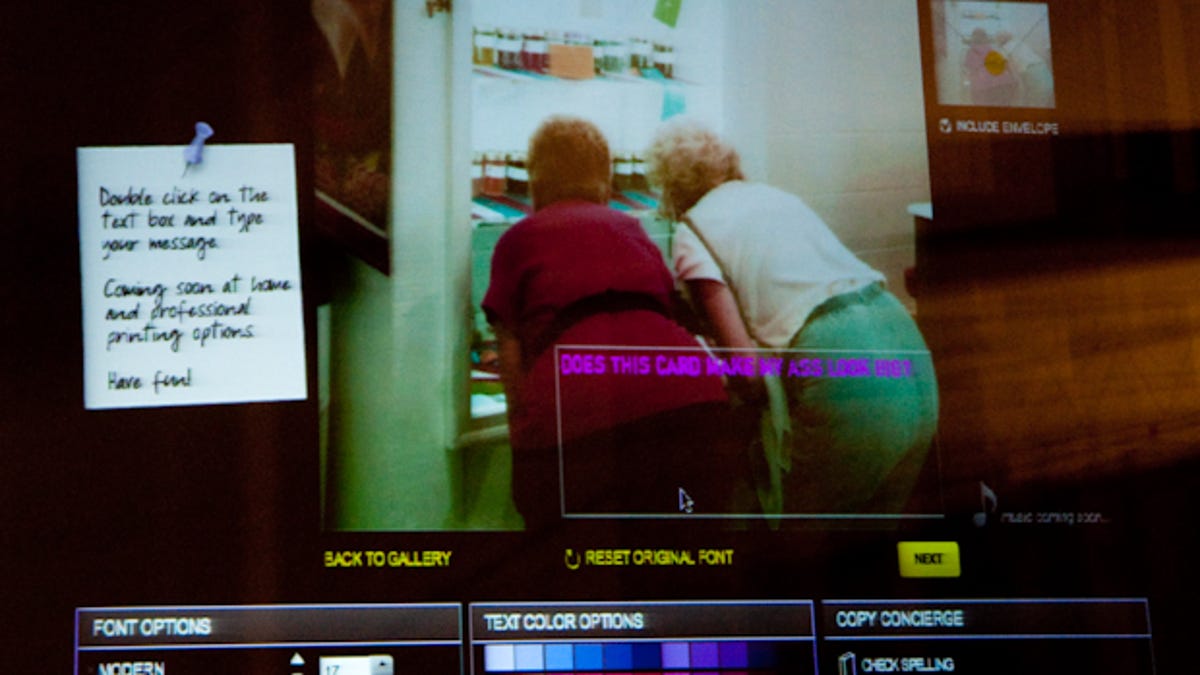TechCrunch50: How to pitch to women in a room full of dudes
Cocodot and Learnvest, two presentations Tuesday at the TechCrunch50 event, have a target audience of women. That's tough when just about everyone listening is male.

SAN FRANCISCO--Let's not kid ourselves. Nobody was expecting the audience at the TechCrunch 50 event to be full of women. That's just the reality of Silicon Valley, notorious for its boys-club culture (and plethora of complaints about how hard it is to find a girlfriend).
So it was undoubtedly a challenge for two of the start-ups pitching to TechCrunch50's all-male panel of industry insiders in Tuesday morning's "Subscription & Commerce Marketplaces" category. They were offering the first look at companies that are geared toward a demographic that's just about the opposite of the conference's audience: women, and not necessarily tech-savvy ones.
The pitches from the two companies, high-end invitation service Cocodot and personal-finance resource Learnvest, couldn't have been more different.
First up was Cocodot, which was founded by former MySpace exec Shawn Gold. At MySpace, which he left about two years ago, Gold served as senior vice president of marketing and content. Which means, basically, the guy knows how to pitch. Cocodot, he said, has a very fine-tuned demographic. "The target is women, who really create 90-plus percent of events," Gold said, showing off the service's slick interface. It's an event planning service that aims to make online invitations an acceptable route for high-end events. There's another start-up, Pingg, offering a similar angle, but Cocodot hopes to court brands, PR firms, and corporations as well as individuals throwing parties. And it hopes to particularly target weddings--for which online invitations are still pretty verboten.
Gold, well-dressed and energetic, was clearly aware that his target demographic wasn't going to be found in the room. He demonstrated the site by sending a Cocodot greeting card to his wife that depicted two overweight women with the caption of "Does this card make my ass look big?" (Um, classy) and added at the end as an appeal to those present, "If you give Cocodot to your wife or girlfriend, you will definitely get lucky."
I'm all for a little levity, especially when we've all been sitting in the same overheated room for a half-day listening to one presentation after another. But Gold's pitch was frankly insulting to both the women who he hopes will use the service, as well as to the predominantly male audience with its assumption that the only way they could possibly understand the aim of Cocodot would be to put a fratty, "Dude! Get laid!" spin on it. Which is too bad, because Cocodot looked pretty darn cool, and the judges agreed. One of them, Google's Bradley Horowitz, said, "I don't want to like this" but admitted that "I could easily see this taking off" among the Hallmark crowd.
The next presentation, though flawed, was a breath of fresh air in comparison.
The CEO of Learnvest, a petite twentysomething blonde named Alexa von Tobel, was one of only a few female CEOs pitching companies at the entire two-day event. Her company, an online personal-finance compendium, is "designed to fill the enormous, gaping hole" between financial self-help books and expensive financial planners for hire, she explained.
"Our core audience is women, an audience historically ignored and underserved in this topic," von Tobel said. Learnvest lets members build up profiles for personalized personal-finance advice, set goals, and earn points and badges in a game-style format by accomplishing goals, helping other members, and offering feedback to the company.
Von Tobel was clearly nervous as hell, especially when the reception from the judges was less positive than she may have expected. Several of them were skeptical of the game-like format, wondering if it could really be applied to something as private and serious as personal finance.
"I could easily see guys I know wanting to be a level-19 ninja," judge Bradley Horowitz said. "I don't know anyone who wants to be a seventh-degree debt removal expert."
Another judge, Digg founder Kevin Rose, concurred. "It's going to be really hard to get people to admit that they're in debt and put that on a profile."
They make a very good point. But von Tobel had done her homework, armed with statistics from Harvard Business School studies about the lack of personal-finance resources for young people, especially women, finishing college and entering the workforce under mounting tuition debt.
"It's not taught in schools, it's not taught in colleges, (and) there's really no good resource online," she said. The judges remained skeptical of Learnvest's game setup, but von Tobel's well-informed rebuttal earned a round of unsolicited audience applause.
(Which, in a sense, is really too bad, as though it meant the TechCrunch50 audience was surprised to hear a young, well-dressed blonde offer such a coherent response.)
Conference organizer Jason Calacanis--who is the CEO of Mahalo, a start-up that targets an audience that isn't necessarily tech-savvy either--seemed to be aware of the fact that maybe Learnvest needed some feedback from outside the all-male judge panel.
"We have a number of women in the audience," Calacanis said, standing up and turning around to poll them on whether they'd want to try Learnvest out. Of course, not many hands went up. But that's to be expected when the audience is easily 75 percent male: every woman I could see had her hand raised.
The lesson? If you're pitching a women-focused company to a roomful of Y chromosomes, insulting the target audience--however absent they may be--is still pretty darn tacky. At a start-up pitch conference, the presentations need to be smart, well-informed, and above all, any pitch that's reliant on marketing to a niche demographic has to show that it takes that demographic seriously.
And don't assume that the guys are going to be too dumb to understand the straight sell, either. There doesn't always have to be a get-laid angle. At least I'd like to think so.

